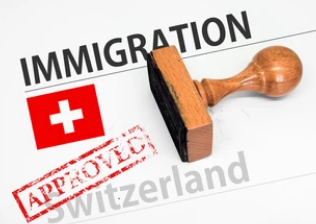Splitting assets and pension funds when divorcing requires a thorough understanding of the Swiss pension system. With a rate of divorce of almost 50% in the canton of Geneva, divorce proceedings commonly involve expatriates living and working in Switzerland. Under Swiss law, pension schemes must be shared equally between spouses and assets disentangled to ensure a fair and equitable distribution (art. 122 to 124 CC). Expats, however, often have their pension contributions placed in foreign institutions, which could rend a divorce under Swiss law quite complex.
Splitting the 2nd Pillar pension fund, called “prévoyance professionnelle” (LPP), deserves special attention in the case of a divorce, in particular for expats contributing to pension funds located overseas. The key point revolves around the process of estimating what corresponds to a 2nd Pillar fund for the Swiss judge and how to equilibrate these funds between spouses.
The law has been recently revised to address the issue of spouses being disadvantaged in the splitting process of retirement funds. Thus, conflicts often arise when one spouse has contributed much more than the other to his 2nd Pillar. This article provides an overview of the Swiss pension system and the different regulations applying to split these funds in a divorce as well as presenting the recent changes brought to the law concerning the timing and the sharing of 2nd Pillar contributions between divorcing spouses.
The three Pillar system
The Swiss pension system is based upon three “Pillars”. The 1st Pillar consists of the state pension (AVS), received from the age of 65 for men and 64 for women. It is based on the number of years contributed, the income level and any allocations received during military service, maternity care, invalidity or unemployment. It aims to partly cover the loss of income resulting from retirement, invalidity or death of a spouse and to provide a basic subsistence level of income. However, expatriates working in Switzerland for the UN organizations or for multinational are often not part of the Swiss social insurance system and benefit of different types of retirement plans such as the UN Pension Fund or Trusts located overseas.
The 2nd Pillar fund consists of a mandatory fully-funded pension scheme directly deducted from the employee’s salary, where both the employer and the employee contribute proportionally to the insured income. It covers retirement benefits, invalidity benefits, dependent benefits in the case of the death of the spouse contributor and vested benefits (“prestations de libre passage”) when leaving the employer’s pension. The 2nd Pillar only insures income when wages exceed 21,150 CHF per year paid from the same employer. Independents can also affiliate themselves on a voluntary basis by paying a monthly contribution to a 2nd Pillar institution of their choice.
The 3rd Pillar is a private pension scheme, non-compulsory and offering tax advantages, consisting of savings or inheritance built up during employment in prevision of retirement.
Splitting pension contributions in a divorce
In the case of a divorce, the three Pillars are split according different regulations. As stated before, the 1st Pillar is a state pension, the 2nd Pillar is a mandatory work-related pension and the 3rd Pillar consists of savings or inheritance. The 1st Pillar cannot be split in a divorce. The 2nd Pillar, however, is required under Swiss law to be equally split between spouses to ensure that each party receives retirement benefits post-divorce (art. 122 CC). The 3rd Pillar can be split or not, depending on the marital regime chosen by spouses. It is subject to the liquidation of matrimonial property (when the matrimonial property should actually be split). If spouses have not signed a marriage contract specifying the separation of assets, which is the case in 95% in Switzerland, they are subject to the regime of participation in acquired property. This implies the equal splitting of assets, where debts and pension funds are equilibrated between spouses at the time of the divorce. If spouses have signed a separation of assets agreement, each spouse is responsible for his/her debts and assets. Private savings accumulated by one spouse during marriage and placed into a 3rd Pillar fund cannot be shared under the separation of assets.
The particularity of the 2nd Pillar pension fund
Until now, spouses who had already reached retirement time or started receiving their benefits (occurrence of an insured event) were not entitled to share their 2nd Pillar when divorcing, but received an indemnity based on the judge estimation of the equivalent of 2nd Pillar contributions. This situation proved to controversy in divorce proceedings where spouses were in some cases disadvantaged by the indemnity system not reflecting the fair share of the equivalent of 2nd Pillar benefits.
Additionally, 2nd Pillar contributions were often not well equilibrated between spouses at the time of the divorce, resulting in major issues for the disadvantaged spouse. For instance, if a spouse chose not to work during the marriage or to work on a part-time basis while the other spouse contributed on a full-time basis to his fund, the non-employed spouse ended up with an insufficient 2nd Pillar at the time of retirement. If the divorce proceeding lasted several years and the non-employed spouse reached retirement, he could have been facing a very precarious situation.
The issue of time lags in divorce proceedings and the difficulty for the judge to obtain clear information about spouses’ individual assets resulted in the law to be revised in 2015.
What is new?
The Swiss Federal Counsel has recently modified the law regarding the splitting of the 2nd Pillar in the case of a divorce (art. 122 to 124 CC). From the 1st January 2017, these modifications were enforced aiming to reduce inequalities between spouses. These changes, however, will not affect the pension-splitting decision but the timing for the calculation of benefits.
First, the 2nd Pillar fund is now equally shared between spouses, regardless of whether one of the spouses is already receiving a pension for invalidity or retirement in the case of an insured event. The indemnity scheme based on art. 124 CC is no longer existing. If the divorce takes place when a spouse is already receiving benefits, the share from the 2nd Pillar is granted in the form of a life annuity (“rente viagère”). This life annuity is granted regardless of the spouse creditor deceases or remarries, allowing the spouse to receive non-biased benefits.
The second major change consists in the timing of the pension-splitting process. Splitting the 2nd Pillar is no longer happening at the time of the divorce pronouncement but is now occurring once the judge starts the proceeding (art. 122 CC). This aims to address the issues of a divorce proceedings being particularly lengthy where the time lag spans over several years, disadvantaging the spouse who is not receiving his share of the pension or a spouse taking advantage of the other by optimizing his share. This modification should ensure that there is no more abuse of rights.
Additionally, to avoid the issue of lack of clarity, the different 2nd Pillar institutions must now declare each year before the end of January every person affiliated to their funds, to ensure transparency for the judge in the case of a divorce (art. 122 CC). The Swiss courts are now granted exclusivity in obtaining knowledge of each person possessing a 2nd Pillar fund.
The judge has the power to avoid the pension-splitting decision if spouses have agreed on a mutual basis not to share their 2nd Pillar, when they have both contributed and their individual’s funds are estimated to be sufficient (art. 123 CC). Typically, a large number of divorced couples agree to renounce to share their 2nd Pillar funds. This act of renunciation must be part of the divorce settlement where the judge has previously ensured that conditions required in art. 123 al 1 CC, the spouse is benefiting from a sufficient 2nd Pillar fund, are fulfilled. The judge also has the authority to refuse to proceed to the sharing of pension benefits if it results in an unfair situation for one of the spouses, based on criteria that happened before the marriage.
Expats and their equivalent 2nd Pillar pensions
Expatriates working in Switzerland employed by international organizations often benefit of a foreign retirement pension plan. If the equivalent of 2nd Pillar pension exists and is located overseas, the Swiss judge must apply the law of the foreign country where the fund is located. The law requires that the judge proceeds first to an expertise of what consists a 2nd Pillar contributed overseas, and fix an indemnity based on this equivalence. This expertise must take place regardless of what the foreign law prevails about splitting the pension (art. 124 CC). The notion of fair indemnity introduced by the new law gives the judge the flexibility to find a balance between the foreign judgment and the Swiss law when splitting the foreign pension.
The issue lies in estimating what is the equivalent of a 2nd Pillar fund contributed overseas in the case of a divorce. The judge will have to evaluate each case carefully and determine whether spouses are affiliated to different pension plans overseas, what do they correspond to and undertake some research on spouses’ situation before proceeding on the estimation of the indemnity. If the judge estimates that the overseas benefits are equal to a 2nd Pillar fund, an indemnity corresponding to half of the fund will have to be granted to the spouse. If the judge estimates that these funds are not equivalent to a 2nd Pillar fund but more to a 3rd Pillar, the benefits cannot be shared if spouses are married under the separation of assets or will be split differently if spouses are married under the participation of acquired property. The issue of hidden pension benefits located overseas in the case of foreigners working in Switzerland can be challenging, in particular in the case of expatriates working for multinationals companies completing short-term assignments in various countries.
In light of these difficulties, expatriates should be aware that 2nd Pillar contributions must be shared equally and equilibrated between spouses in a divorce under Swiss Law. Spouses should provide all necessary information if they possess the equivalent of 2nd Pillar pension funds located overseas to ensure transparency to the judge. The notion of a fair indemnity granted to the divorcee who does not benefit of a sufficient 2nd Pillar fund is a revolving point brought by the recent changes in the law.
Contact us at legalexpat@oalegal.ch for legal advice.
10/06/18 – Nicolas Mossaz, partner and founder of Legal Expat Geneva




